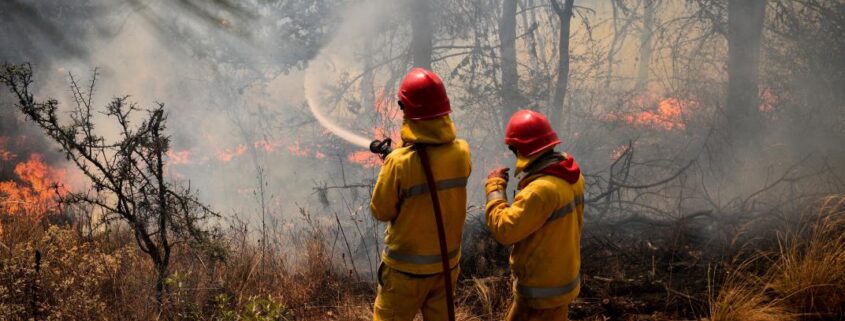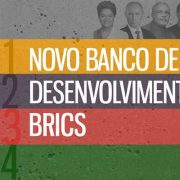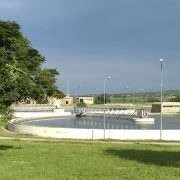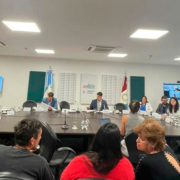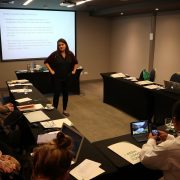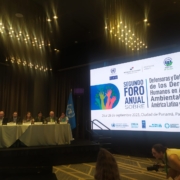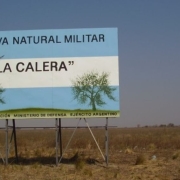The province on fire, again
Native forest ecosystems, no less than a month after the last fires, are again affected by this phenomenon, causing immeasurable environmental damage. Even though drought conditions constitute a variable that increases the risk of fire, these, for the most part, come from a premeditated and intentional human action.
“Below, we offer a google translate version of the original article in Spanish. This translation may not be accurate but serves as a general presentation of the article. For more accurate information, please switch to the Spanish version of the website. In addition, feel free to directly contact in English the person mentioned at the bottom of this article with regards to this topic”.
During the month of August, the province suffered serious fires that spread over over 40 thousand hectares, causing serious socio-environmental damage, that is, destruction and disappearance of forest ecosystems, damage to homes and evacuations of those who live in the vicinity. Even though its effects persist in the burned areas, new sources of fires are seriously affecting other geographical sectors of Cordoba.
This serious situation makes it possible to question the actions of the authorities regarding the efficiency or even existence of a system to prevent these phenomena. The reality is that less than a month after the last fires, prevention failed again and today it is necessary to observe and regret – again – the loss of biodiversity and the damage to mountain communities due to intentional fires in the province.
The objectives and values that arise from the environmental protection regulatory system, and in particular, from the fire management system (National Fire Management Law No. 26,815) and that should guide the implementation of public policies around the phenomenon, they were and are clearly unfulfilled. The early warning and action systems envisaged in the regulations seem to be part of an ideal far from their effective implementation.
Notwithstanding this, even when the preventive stage has largely failed, it is important to emphasize the duty of recomposition that weighs on those who are responsible for the fires as well as on the authorities, and on the important role played by citizens and civil society in demanding compliance. Contrary to what seems to have happened on the preventive side, the recomposition cannot and should not constitute an illusion. Real measures must be put in place to guarantee, from a technical point of view, adequate restoration of ecosystems, ensuring real (not fictitious) citizen participation that allows communities to monitor and be part of this process.
At this point, it is necessary to clarify that, according to current regulations, the areas that were protected by the categories of forest land management do not lose this categorization due to fires, and there is an obligation to recompose them. This circumstance should not be ignored because any undertaking or action that intends to use these territories must be subject to the restrictions that are in force for the corresponding protection category, even when as a result of the fire there is no native forest there.
On the other hand, it is important to note that even when the figure of “ecocide” serves as a conceptual category to frame the events, the truth is that from the legal point of view, it is not incorporated into the Argentine criminal law. The reality is that the use of category can divert attention, blurring the true criminal responsibility attributable from Arts. 186,187, 188 and 189 of the Penal Code, that is, the crime of arson in its various forms and according to its various qualifiers. For this reason, it is important to note that this type of responsibility exists, is punishable by the Penal Code, can and should be reported, investigated and tried, without prejudice to the corresponding responsibilities regarding environmental recomposition.
From Fundeps, we believe that the authorities should, among other possible measures, carry out effective prevention actions immediately; comply with an adequate investigation in order to determine and attribute the corresponding responsibilities for the damages or crimes committed; launch an environmental recomposition plan closely linked to citizen participation; and to tend to the protection of all the native forest ecosystems existing in the province not only in relation to fires but also around any activity that threatens their integrity.
Contact
Juan Bautista Lopez, juanbautistalopez@fundeps.org
Source
Images of fires in Falda del Carmen and Bosque Alegre (Pedro Castillo / La Voz)

